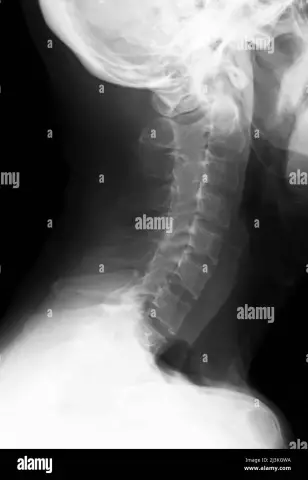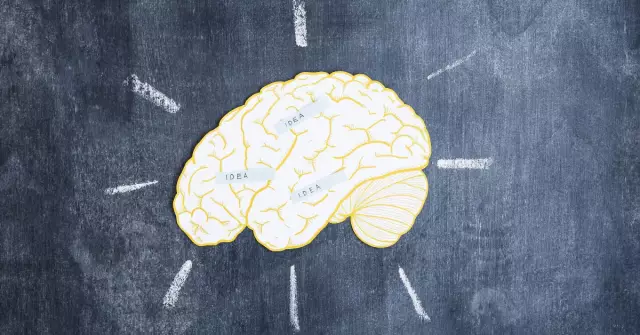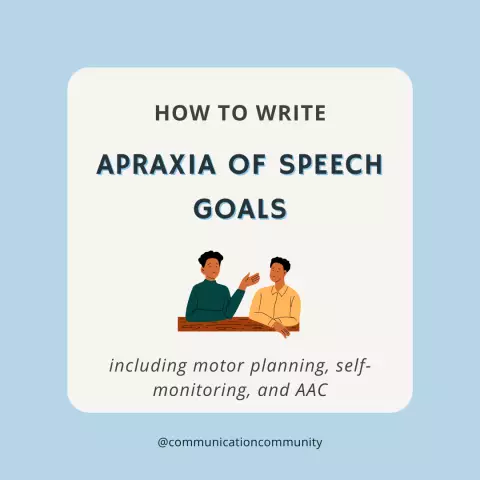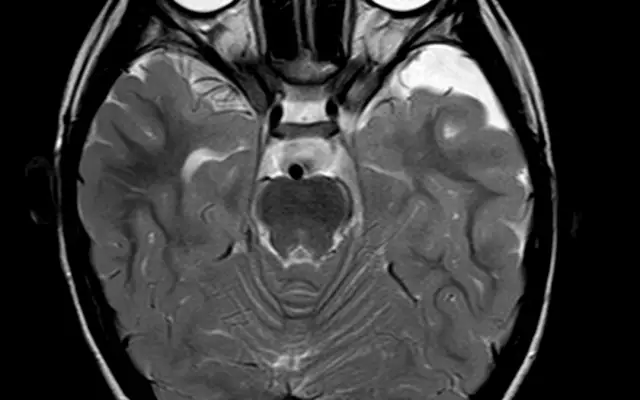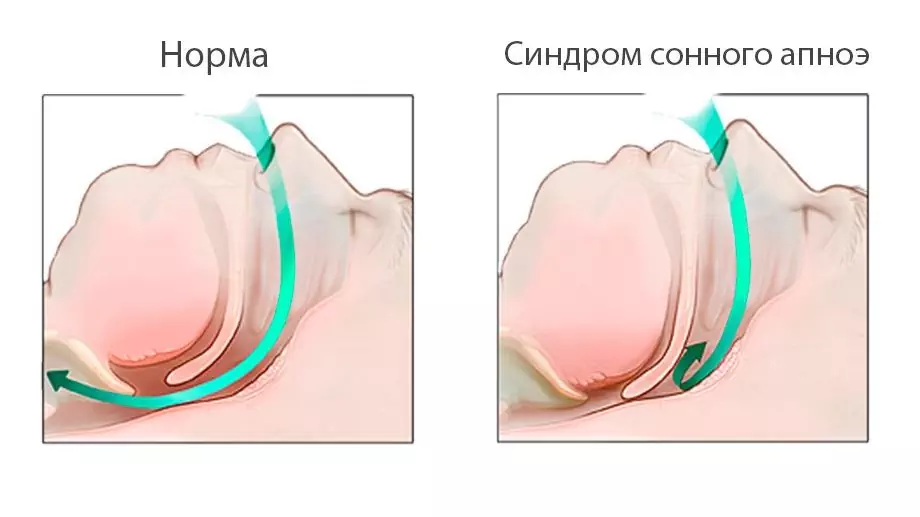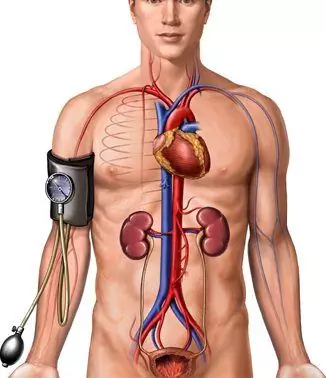Diseases
Last modified: 2025-11-02 20:11
Anisakidosis (a disease of cod or herring worms) is a parasitic disease caused by the ingestion of larvae of nematodes of the family Anisakidae into the human body. The first case was reported in 1955 in Holland; it was associated with eating poorly salted herring. Currently, this helminthiasis is recorded in almost all countries of the world
Last modified: 2025-11-02 20:11
Aneuploidy is a change in the set of chromosomes, in which their number in cells does not correspond to the norm. Aneuploidy is a collective term: it combines diseases caused by an increase in the number of chromosomes and diseases caused by a decrease in their number
Last modified: 2025-11-02 20:11
Anisocytosis is the appearance in the general blood test of cells larger or smaller than normal in size. An increase or decrease in diameter in various pathological conditions is characteristic of erythrocytes
Last modified: 2025-11-02 20:11
Ankylosis is a disease in which pathological changes occur in the joint, leading to its complete immobility
Last modified: 2025-11-02 20:11
Anophthalmia - underdevelopment or complete absence of the eyeball, visual pathways, optic nerve and junction. The frequency of birth of children with a similar pathology of the visual system is from 3 to 6 cases per 100,000 newborns. The disease occurs with the same frequency in all countries of the world, in children of both sexes
Last modified: 2025-11-02 20:11
Arnold Chiari anomaly is a congenital disorder characterized by a defect in the development of the rhomboid brain
Last modified: 2025-11-02 20:11
Anorexia is a severe physical and mental illness characterized by a disorder of normal eating behavior
Last modified: 2025-11-02 20:11
Ankylostomiasis (Egyptian chlorosis, miners' rash, earthen scabies) is a parasitic disease caused by a duodenal hookworm (a helminth from the class of roundworms). The disease proceeds with severe allergic lesions of the skin, organs of the gastrointestinal tract and the respiratory system, iron deficiency anemia
Last modified: 2025-11-02 20:11
Anorchism is a congenital complete absence of both testes (testicles). Testicular appendages, vas deferens, and prostate are also absent or severely hypoplastic
Last modified: 2025-11-02 20:11
Anopsia (or anopia) - literally "lack of vision" (Greek anopsis, from an - a particle with the meaning of negation and opsis - vision)
Last modified: 2025-11-02 20:11
Ebstein's anomaly (after the name of the pathologist who first described the disease) - congenital cyanotic heart disease
Last modified: 2025-11-02 20:11
Anthropophobia (human phobia, fear of people) is one of the variants of social neurosis, which is characterized by the appearance of discomfort and fear in the patient at the moment of contact with other people
Last modified: 2025-11-02 20:11
Anencephaly - a gross malformation of the fetus, consisting in the complete or partial absence of the cerebral hemispheres, soft tissues and bones of the cranial vault
Last modified: 2025-11-02 20:11
Aortic stenosis - a disease characterized by a narrowing of the outflow tract of the left ventricle in the region of the aortic valve
Last modified: 2025-11-02 20:11
Antiphospholipid syndrome (APS) is an acquired autoimmune disease in which the immune system produces antibodies (antiphospholipid antibodies, aPL) to phospholipids in the membranes of its own cells or to certain blood proteins. In this case, there is damage to the blood coagulation system, pathology during pregnancy and childbirth, a decrease in the number of platelets, as well as a number of neurological, skin and cardiovascular disorders
Last modified: 2025-11-02 20:11
Aortitis is a disease in which the walls of the aorta become inflamed (aortitis, from the Greek aortē - "aorta" and Latin -itis - the ending indicating the presence of inflammation)
Last modified: 2025-11-02 20:11
Apnea - respiratory arrest. Typically, treatment for apnea syndrome combines weight loss, treatment of chronic rhinitis, and avoiding alcoholic beverages
Last modified: 2025-11-02 20:11
Anuria is a pathological condition caused by various reasons, a sign of which is the cessation of the flow of urine into the bladder
Last modified: 2025-11-02 20:11
Apathy is a state of indifference, indifference to the surrounding reality, which often arises after suffering serious illnesses
Last modified: 2025-11-02 20:11
Anembryonia is a variant of non-developing pregnancy, a sign of which is the absence of an embryo in the ovum. Treatment is to terminate the pregnancy
Last modified: 2025-11-02 20:11
Apical periodontitis is an inflammatory process localized in the area of the apex of the tooth root (periodontium). This is one of the most common dental pathologies. It is diagnosed in every third patient between the ages of 20 and 60 who visits the dentist
Last modified: 2025-11-02 20:11
Aplastic anemia is a hematological disease characterized by pancytopenia (a decrease in the amount of all blood cells), a sharp suppression of hematopoietic germs, fatty degeneration of the red bone marrow
Last modified: 2025-11-02 20:11
Ovarian apoplexy, or ovarian rupture, is an acute condition resulting from a sudden violation of the integrity of the ovarian tissue. Treatment for ovarian apoplexy must be urgent
Last modified: 2025-11-02 20:11
Apraxia is a disease that affects the cerebral hemispheres and develops after a stroke, tumors and brain injuries
Last modified: 2025-11-02 20:11
Appendicitis is an inflammation of the appendix called the appendix. Removal of appendicitis is performed under general anesthesia; in some cases, local anesthesia may be used in lean patients
Last modified: 2025-11-02 20:11
Arachnoid cyst - a type of brain cyst, is a benign hollow formation filled with fluid
Last modified: 2025-11-02 20:11
Sleep apnea is a pathological condition that is manifested by breathing disorders that suddenly occur during sleep. Apnea episodes can last from a few seconds to several minutes, which negatively affects all internal organs, especially the central nervous system
Last modified: 2025-11-02 20:11
Arachnodactyly (literally "spider fingers") is a deformation of the fingers of the hand, observed in some hereditary pathologies. As a rule, arachnodactyly is accompanied by lengthening of tubular bones (which leads to deformations of the skeleton), pathological changes in the cardiovascular system and eyeballs
Last modified: 2025-11-02 20:11
Appendicitis in children is a common disease. Its symptoms are similar to intestinal disorders, which is why diagnosis is often difficult
Last modified: 2025-11-02 20:11
Arachnoiditis is a serous (non-suppurative) inflammation of the arachnoid membrane of the spinal cord or brain
Last modified: 2025-11-02 20:11
Argyrosis is a dermatological disease caused by the ingestion of silver (or its compounds) into the human body in a significant amount and the deposition of this metal in the skin, leading to a change in their color
Last modified: 2025-11-02 20:11
At this time, doctors know dozens of types of arrhythmias. Some of them do not manifest themselves in any way, others are deadly. This means that in case of any rhythm disturbances you should consult a doctor, and not rely on your own intuition and self-medication
Last modified: 2025-11-02 20:11
Unlike other diseases of the cardiovascular system, arterial hypotension is not so dangerous. However, low blood pressure leads to a decrease in the quality of life and discomfort
Last modified: 2025-11-02 20:11
Arachnoentomoses are a large group of heterogeneous parasitic diseases caused by hymenoptera insects and arachnid mites. These diseases are widespread among animals, people suffer from them much less often
Last modified: 2025-11-02 20:11
Arrhythmogenic right ventricular dysplasia (arrhythmogenic right ventricular cardiomyopathy) is a rare disorder that is thought to be based on genetic causes. It is characterized by structural changes in the structure of the wall of the right ventricle, consisting in the replacement of cardiomyocytes with fibrous-adipose tissue, and the development of arrhythmia
Last modified: 2025-11-02 20:11
Arteriovenous fistula (shunt, fistula) is a direct connection between an artery and a vein, without the participation of the capillary network. This is a form of arteriovenous malformation
Last modified: 2025-11-02 20:11
Arterial hypertension is a serious pathology, which consists in a persistent increase in blood pressure, requiring systematic treatment
Last modified: 2025-11-02 20:11
Arteriovenous malformation is a cerebral vascular malformation. It is characterized by the formation in some parts of the brain or spinal cord of a vascular tangle, consisting of arteries and veins that connect directly to each other, that is, without the participation of the capillary network
Last modified: 2025-11-02 20:11
Arthralgia is joint pain that occurs in the absence of pronounced signs of joint damage, but can precede more serious pathology
Last modified: 2025-11-02 20:11
Arthrogryposis is a congenital disease characterized by limited mobility of two or more large joints in non-adjacent areas, as well as muscle damage (hypo- and atrophy) and spinal cord in the absence of other known systemic diseases




